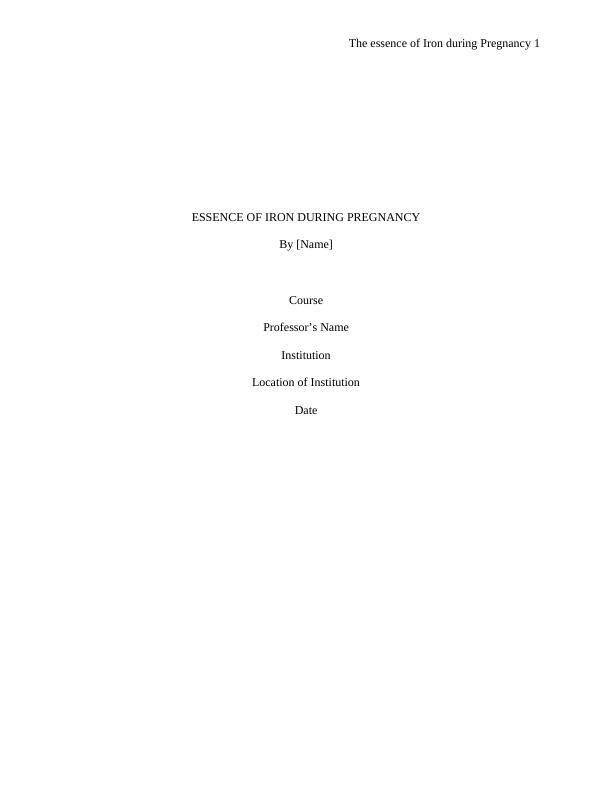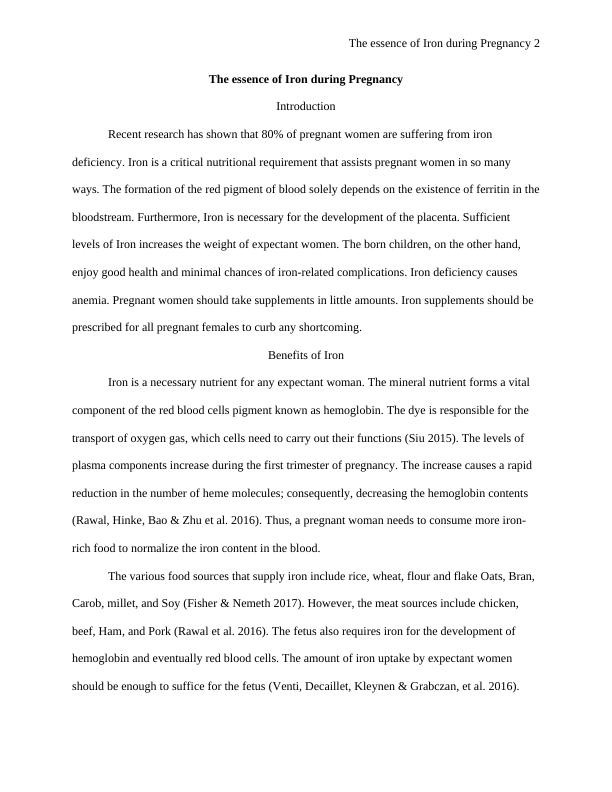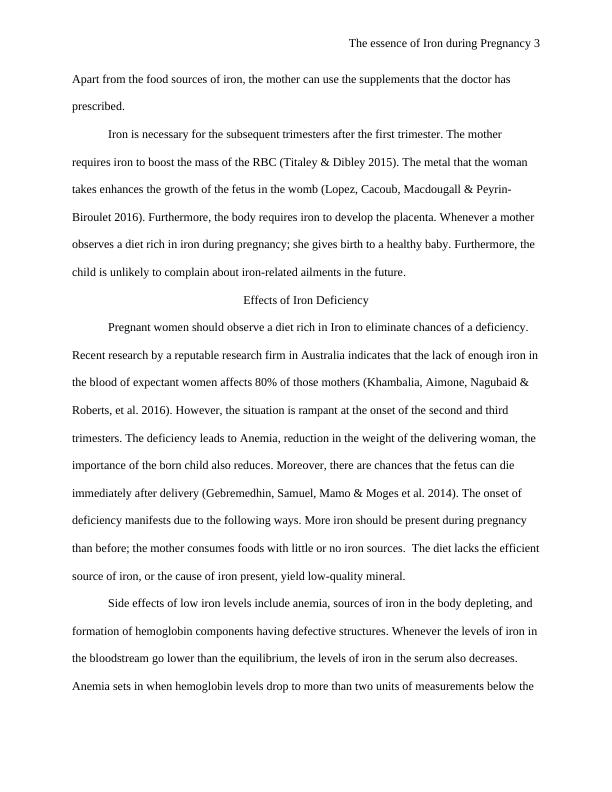The Essence of Iron During Pregnancy: Benefits, Effects, and Supplements
Should iron supplements be prescribed to all pregnant females? Discuss.
7 Pages1682 Words97 Views
Added on 2023-06-12
About This Document
This article discusses the importance of iron during pregnancy, its benefits, effects of deficiency, and supplements. It also provides expert advice on iron-rich food sources and alternatives. Iron is crucial for the formation of red blood cells, development of the placenta, and the growth of the fetus. Iron deficiency can lead to anemia, low birth weight, and even fetal death. Pregnant women should take iron supplements in small amounts to avoid side effects. Vitamin C is a viable alternative to iron-rich food sources.
The Essence of Iron During Pregnancy: Benefits, Effects, and Supplements
Should iron supplements be prescribed to all pregnant females? Discuss.
Added on 2023-06-12
ShareRelated Documents
End of preview
Want to access all the pages? Upload your documents or become a member.
Issues Around Attempting to Auscaltate Fetal Heart Rate
|5
|692
|22
Nutrition Education for Expectant Mothers
|1
|771
|216
The Report on Maternal Micronutrient Deficiencies.
|11
|2924
|18
What should speaker notes include?
|6
|2281
|34
MATERNAL AND CHILD UNDERNUTRITION.
|16
|4198
|55
Biofortification of Tomato
|12
|3556
|99



